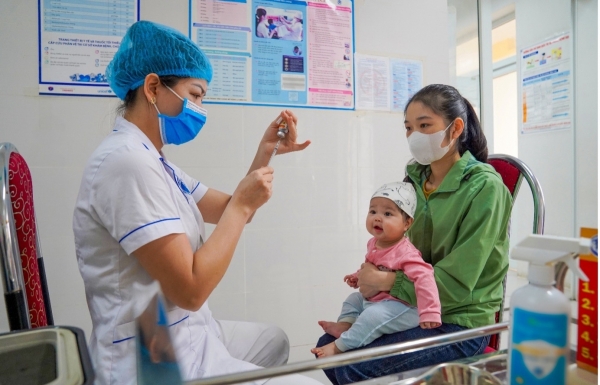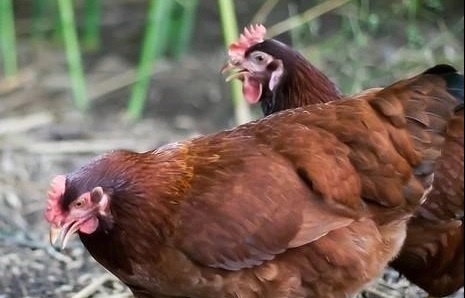INTERNATIONAL INVESTMENT
AND PORTAL
After setbacks in business and investment activities due to the global health crisis, German businesses are planning to expand their business to diversify their supply chain with sustainable energy and infrastructure solutions. Alexander Goertz, chairman of the German Business Association, talked to VIR’s Tung Anh about overcoming the challenging time with its members.
How have German businesses been faring during these challenging times?
 Alexander Goertz, chairman of the German Business Association
Alexander Goertz, chairman of the German Business Association
Last year did not go in the way that we expected. Economic recovery has been held back because of the pandemic, which also has affected our member companies, regardless of industry and size.
Throughout the year, they focused on finding a way to cope with the impacts while trying to maintain operation and production. We have tried our best to comply with all regulations issued by the government and secure health and jobs for our labour force to avoid supply chain disruptions.
The highlight for the German business community was the vaccination campaign, which started in October. Thanks to the support of members of the German Business Association, several supporters from Germany, as well as the German Embassy to Vietnam, we were able to convince the German government to donate 2.6 million doses of AstraZeneca to Vietnam. As part of this donation, an allocation of 100,000 doses was exclusively given for the employees of German companies in Vietnam. This was an unprecedented act of the German government to support companies abroad and shows the importance of bilateral trade between our countries.
The Vietnamese government has issued several policies to support businesses. There have been several actions, such as deferral of tax and land lease payments, the one-time support for employees, and unemployment insurance and the corporate income tax reductions for companies with a turnover of less than $8.69 million. Those incentives help businesses to recover partially, but expenses for COVID-19 prevention like testing and extra allowances for employees remain much higher.
To ensure a quick recovery, we need swift improvements in administrative procedures, especially on work permit issuances and entry regulations. For foreign direct investment, it is crucial to have access to foreign experts and meetings with their business partners. We hope the government is focusing on those topics and so we can see an improvement in the first quarter of 2022.
What is German enterprises’ impression about the local business climate throughout the last year?
Vietnam remains a strategic investment destination for European corporations and enterprises. More than 65 per cent of the respondents of a recent survey conducted by the German Chamber of Commerce (AHK) believed that the Vietnamese economy would recover in 2022. Over the last year, the number of new investments from German companies was quite low. This, however, did not reflect a decrease of interest of German investors in doing business in Vietnam. It is just simply a slowdown due to travel restrictions and lockdowns.
We believe many investors are ready to reschedule their visits to Vietnam in the first half of 2022, especially when the government has approved to resume international commercial flights from January 1.
Has the pandemic had any impact on the performance of the EU-Vietnam Free Trade Agreement (EVFTA) in 2021?
The EVFTA is a key driver for the optimism of German companies in Vietnam. It gives European companies better opportunities to expand further in the market.
Unfortunately, the long lockdowns in Germany and the current dynamic development of the pandemic in Vietnam have been preventing both countries from making use of the reduced trade barriers.
Vietnam has recently stopped following the zero-COVID strategy in favour of a more flexible strategy, which will ease the current constraints and solve bottlenecks for an economic bounce back in 2022. With a bilateral trade volume of almost $15.8 billion in 2021, Germany was by far the most important European partner, and with the advantages from the EVFTA, we expect to see more opportunities for potential exploration, partnerships, and dialogue among enterprises of the two countries in 2022.
Economists forecast that 2022 will see improvements in the business and investment picture. Have you seen any trends among German firms?
Nearly 50 per cent of German companies in Vietnam have planned to expand their business to diversify their supply chain, hence reducing the dependency on China. The current investment trend of German companies still focuses on industrial strengths such as manufacturing and technical processing and services.
Besides those, we think sustainable energy and infrastructure solutions are segments with a very high potential for future investments. Many German companies are market leaders in those fields and can support Vietnam to become advanced in those fields.
However, to attract high-tech enterprises from Germany, some legislative frameworks and supportive administrative procedures are needed for investors. That will help German companies feel confident to enter Vietnam and ensure long-term planning of business operations and strategies.



















